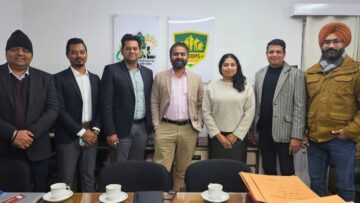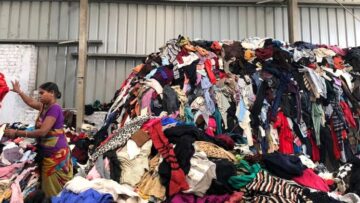
Cibutex, a cooperative of businesses committed to creating a more sustainable textile supply chain, and Reju™, the forward-thinking textile-to-textile regeneration firm, have announced their cooperation. Through this partnership, Cibutex and Reju will endeavour to create an ecosystem among Cibutex member businesses.
Reju will get a feedstock supply of secondary raw materials from post-consumer textile waste through this cooperation, which will be used for recycling and the creation of regenerated Reju PolyesterTM. Using Reju’s cutting-edge textile-to-textile recycling technology, this offers prospects for circular regeneration.
Beginning with polyester, Reju is leading the way in the development of a global infrastructure for the regeneration of large-scale textile waste. Compared to virgin polyester, Reju PolyesterTM will have a 50 per cent lower carbon footprint and be indefinitely regenerable. Through this collaboration with Cibutex, materials from the cooperative’s member businesses will be processed in future Reju Regeneration Hubs as well as Reju’s Regeneration Hub Zero in Frankfurt, Germany, which is scheduled to completely open in 2025.
By bringing together businesses in the textile services industry, Cibutex gathers and processes business textiles that have been used, paving the way for their reintroduction into the manufacturing cycle. By guaranteeing that B2B post-use textiles are gathered and converted into valuable raw materials, it seeks to close the loop on business textile production.
Reju and Cibutex are collaborating to spearhead the shift towards establishing a circular economy for business textiles, according to Reju CEO Patrik Frisk. Cibutex’s unique strategy for enlisting member businesses is a wonderful fit with Reju’s objective of mass textile regeneration. By working together, we are tackling the problem of textile waste and creating an infrastructure that reduces the carbon footprint of the business while preventing valuable materials from ending up in landfills or being burned.
Cibutex CEO Jan Lamme went on to say that the cooperative was established with the goal of promoting a circular textile economy. By partnering with Reju, it becomes easier to reintegrate used business textiles into the manufacturing cycle and achieve the quality and traceability needed for a sustainable future. For the textile service industry, this collaboration is a significant step towards achieving the goal of a closed-loop supply chain.






